Our January Community Hero: Mary Hipp of Feed & Seed Food Innovation Hub
Mary Hipp never thought she’d need to order a 60-pound potato peeler.
Hipp is a co-founder and board chair of Feed & Seed, a nonprofit organization created to connect local farms with groups and individuals who want and need access to locally-grown food.

It’s an idea that grew out of a project Hipp did as part of a Liberty Fellowship in 2012.
In the decade that followed, Feed & Seed went through false starts, location changes and a pandemic but the result is a growing operation in a brand-new 18,000-square-foot facility that opened in April 2022 at the Judson Mill development.
The Food Innovation Hub includes a retail store stocked with locally grown and produced groceries, and a café making high-quality ready-to-eat and ready-to-cook meals.
Some customers come from nearby lower-income neighborhoods, using their SNAP/EBT assistance to make purchases of staple goods, produce and meals at reduced prices.
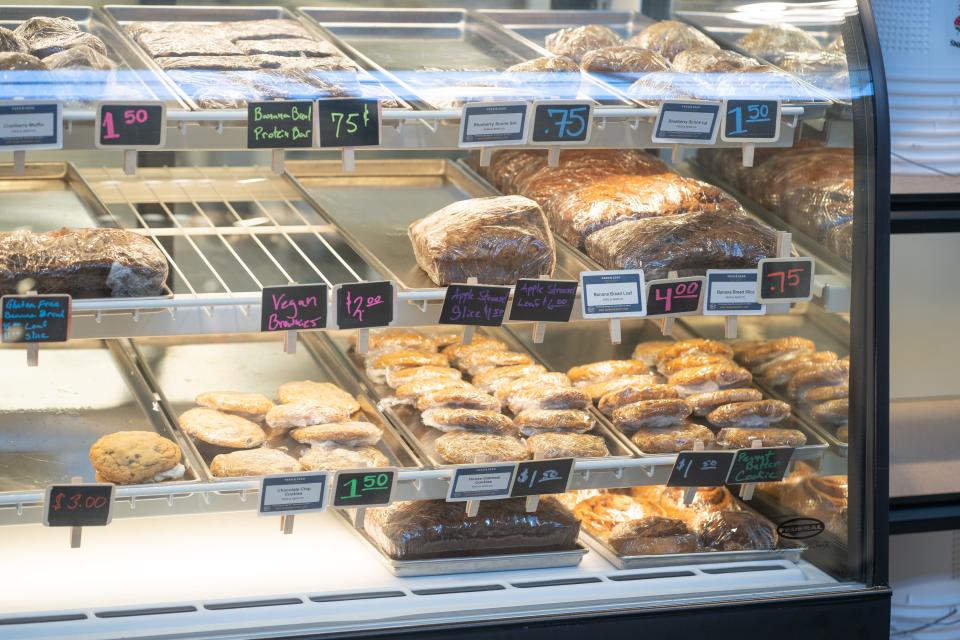
Some come from the businesses and higher-end apartments next door in the growing Judson Mill development, for market-priced café items and specialty products like freeze-dried soup mixes, entrees and fruits. Breakfast and lunch business is really beginning to take off, Hipp said.
That’s the most visible part of the operation. But go behind the café kitchens and retail area and you’ll find a gymnasium-sized food processing and storage facility that offers local farmers a place to deliver their products in quantity and get them prepared for both institutional and individual customers.
One of those customers is Clemson University’s food service, which is buying peeled and sliced, ready-to-cook sweet potato fries, a growing business and the reason that Feed and Seed needs an industrial-capacity peeler.
The processing operation is the source for the vast majority of the food sold in the grocery area and most ingredients in café items.
Feed & Seed also packs and distributes fresh food boxes for Food Share programs in Pickens and Oconee counties and acts as the storage and delivery hub for Greenville County’s Food Share, which is operated by Mill Village Farms.
Any fruits and vegetables that can’t be sold immediately can be prepared and flash-frozen or dehydrated for storage or sale, preventing spoilage and waste.
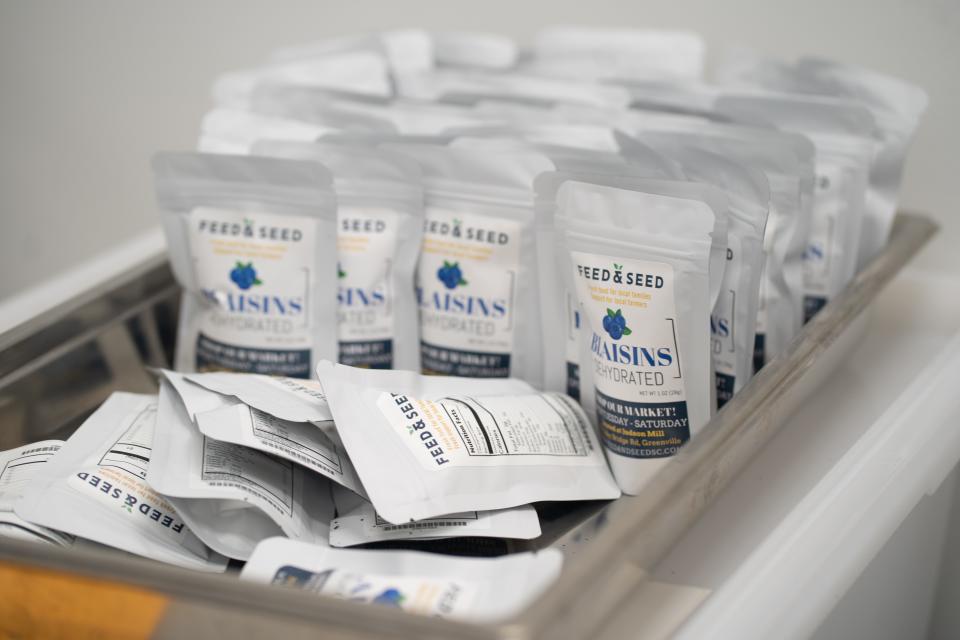
Even the waste doesn’t go to waste. The potato peelings go to a local pork producer as feed. Trimmings from lettuce and other greens become food for local chickens.
It’s what Hipp calls a “closed-food loop,” a system that brings the people who grow our food together with those who want and need it. All of it.
It’s a big loop and it’s taken quite a long time to develop and a lot of work from a committed team, Hipp says.
“My father always said that a good idea takes 10 years, and he was not kidding.”
For the persistence to see the project through and the benefits that Feed & Seed is bringing to Greenville and the Upstate, Hipp is January’s Greenville News Community Hero.
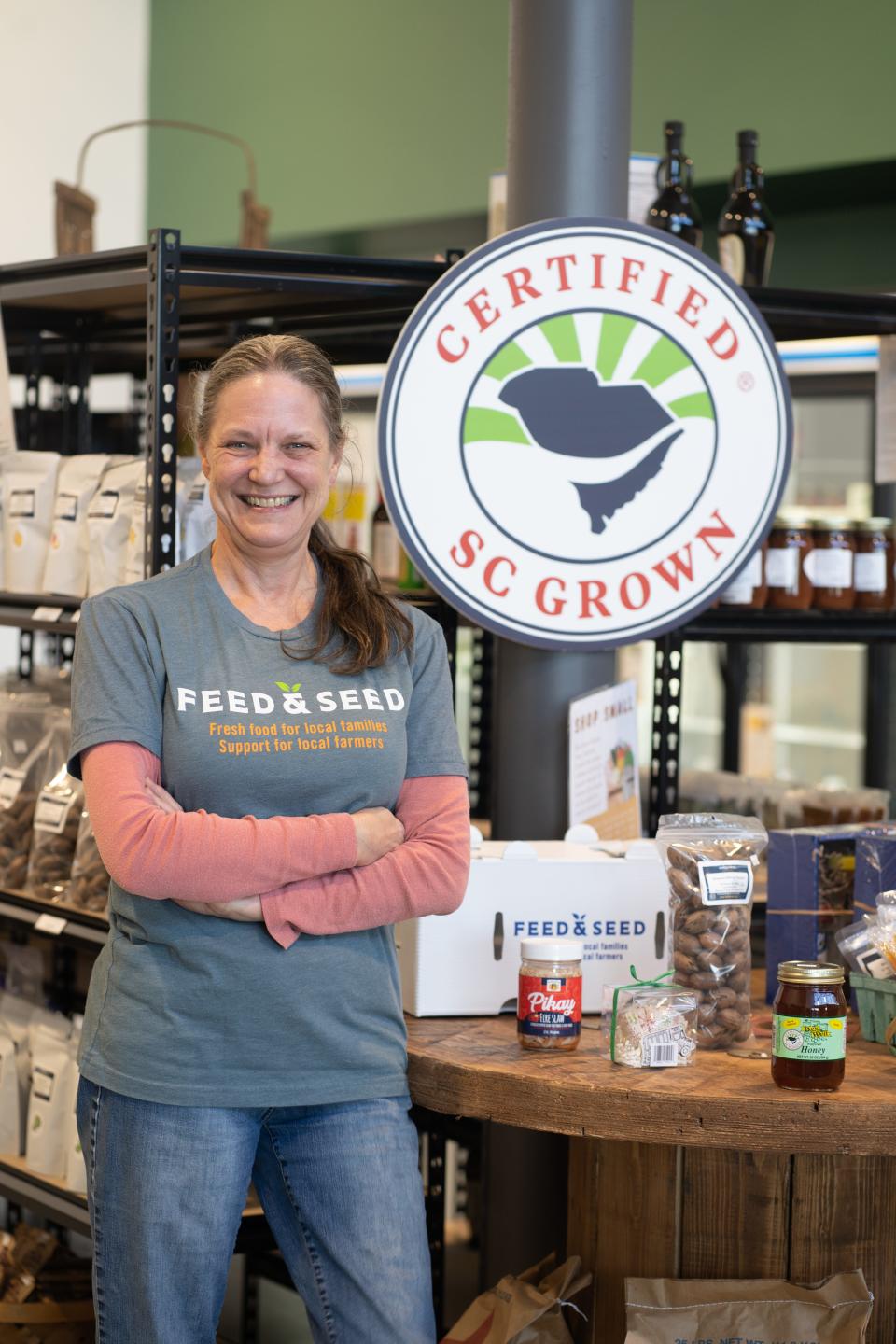
The Community Hero program, sponsored by the Greenville Federal Credit Union, is a way of recognizing generous and selfless work by those among us who make our community a better place.
The journey that led to this point would have seemed improbable to Hipp when she left Greenville in 1982 for school in Rhode Island, then college in Virginia and a decade in San Francisco as a chef and culinary instructor.
Hipp is a fourth-generation Greenvillian, the daughter of Hayne and Anna Kate Hipp. Her father, who died in 2020, was a business leader described as a visionary and champion of Greenville, the Upstate and its people. Her mother has been a leader of numerous philanthropic and community service organizations.
You could say trying to strengthen and serve the community is a family business.
There have been so many surprises, but every one of them has been a learning experience.
Mary Hipp, Board Chair of Feed & Seed
So too for Mary, though she says she was reluctant to make her hometown her home, even after she decided to leave California in 2006 and move back East. Why return? She said that she "realized that my rent was more than my brother and sister’s mortgages, combined.”
“But I still had 1982 in my head,” she said of choosing a place to settle. “No way. I’ll pass through Greenville to figure out where I’m going to live in the Southeast, but it will not be Greenville.”
More:December Community Hero: Dr. Manisha Shanbhag has a heart for service
She said once she got involved in the community, it became clear that Greenville wasn’t the place she’d left and only visited sporadically. She got involved in volunteer work, serving as a board member and chair of the Greenville Zoo, and being selected for a Liberty Fellowship.
The fellowship program is based at Wofford College in Spartanburg and was founded by Hayne and Anna Kate Hipp.
As part of the fellowship, each participant develops and implements an individual project aimed at creating a better future for South Carolina.
Hipp’s project focused on getting fresh, local food into school lunch programs to improve the nutritional quality students were getting.
At about the same time, Ten at the Top, an Upstate-wide economic cooperation, and collaboration group, was working on a program to help local farmers more easily distribute their products, through central warehousing and marketing.
Nominate a Community Hero: Shine a light on someone who is making a difference
The two ideas merged into Feed & Seed, though finding a place to call home and launch the full operation took ... well, about 10 years.
“We’re on version 4.0,” Hipp says.
Version 1.0 was a site on Laurens Road near downtown Greenville, which is now Willy Taco; 2.0 was a space in The Commons building, which now sits in the middle of the new Unity Park; 3.0 was the former Southern Weaving building on Bramlett Road. Each location fell through before construction and operations could start.
Hipp said that when the Southern Weaving site was sold, Feed & Seed was in danger of folding for good, and a $250,000 grant from the Appalachian Regional Commission for equipment was in jeopardy.
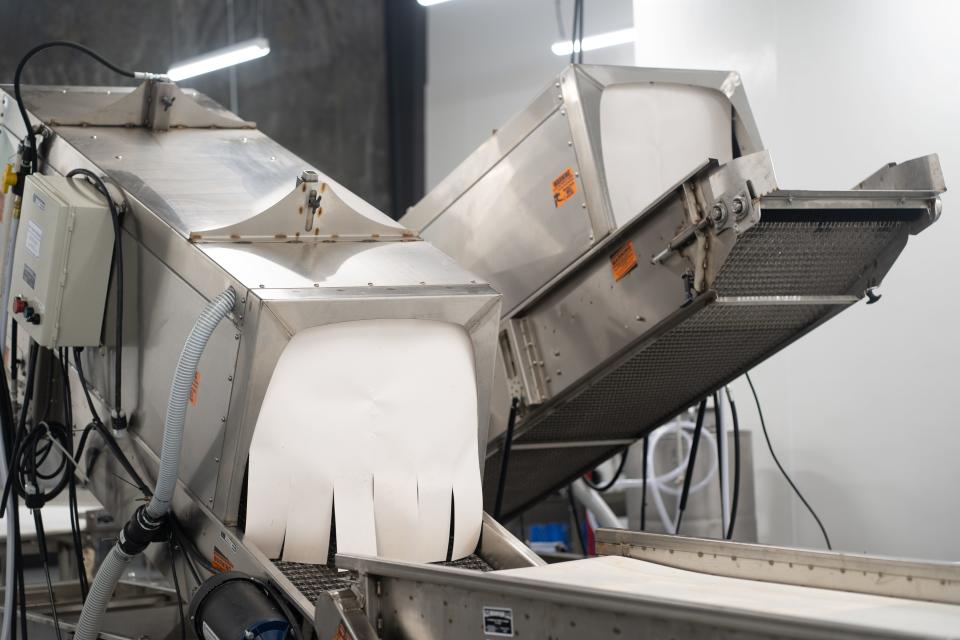
It was then that the Judson Mill developers approached with a proposal. A lease was signed, plans were drawn up for construction. Then, the pandemic.
“We were originally supposed to be open here in April 2020,” Hipp said. The equipment purchased for the building went into storage and progress slowed to a crawl.
During the pandemic, Feed & Seed set up temporary quarters at Greenbrier Farms in Easley to operate Food Share programs and help provide food to those who needed it and to keep farmers afloat when their customers like schools and restaurants were closed.
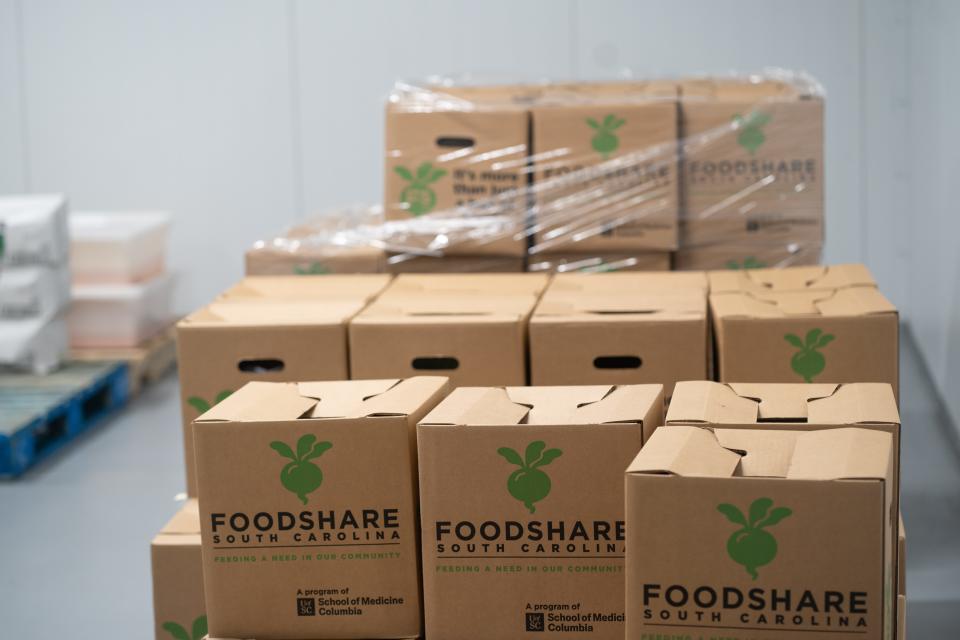
Finally, as the pandemic waned, the new building was ready for setup and move-in.
“There have been so many surprises, but every one of them has been a learning experience,” Hipp said.
Now that Feed & Seed is operating after so many years of planning, with a staff of 19 and plans for more, Hipp says the next few years will be all about continuing to grow and learn.
“What’s the best way we can help the community? How can we help farmers? What niches do we need to fill?”
This article originally appeared on Greenville News: Community Hero: Mary Hipp of Feed & Seed Food Innovation Hub

